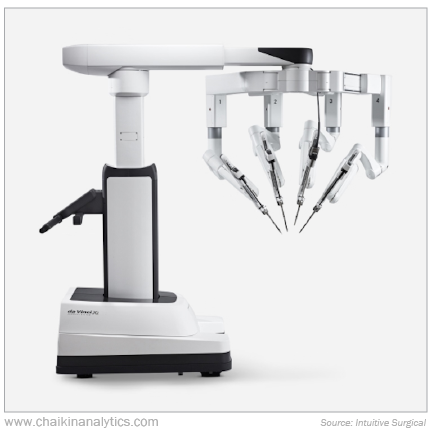Nvidia’s Record Growth: Is a $4 Trillion Market Cap Within Reach?
In just a few years, Nvidia (NASDAQ: NVDA) has achieved remarkable success. The company shifted from focusing mainly on the video gaming industry to becoming a leading provider of artificial intelligence (AI) chips. In fact, Nvidia now generates more revenue in a single quarter than it used to in an entire year, with revenue soaring 94% to over $35 billion in its most recent three-month period.

Image source: Getty Images.
Nvidia’s Transition to AI Dominance
To understand Nvidia’s impressive journey, it’s essential to recognize its origins. Previously, Nvidia primarily catered to the gaming market with high-performance graphics processing units (GPUs). However, the GPUs’ capability to execute multiple tasks simultaneously made them valuable beyond gaming. The introduction of the parallel computing platform, CUDA, was a pivotal step in this evolution.
As AI technology surged, Nvidia’s GPUs became indispensable. The company fully embraced AI, customizing its products to fit this emerging market while offering a wide range of related services. This strategic move allowed Nvidia to secure over 80% of the AI chip market and set itself up for long-term success.
Currently, Nvidia serves as the go-to provider for companies investing in AI projects. Major tech giants, including Meta Platforms and Microsoft, rely on Nvidia for their AI needs. Additionally, Nvidia’s offerings are accessible across various public cloud platforms, simplifying access for potential customers.
This approach has led to triple-digit revenue growth for Nvidia’s data center business and profit margins exceeding 70%. Consequently, the company not only excels in revenue but also in profitability.
A Look at Nvidia’s Stock Performance
Nvidia’s stock has mirrored its success story, with shares skyrocketing by 2,600% over the past five years. This year alone, the stock is on track for a nearly 200% increase.
Anticipating a $4 Trillion Market Capitalization
What lies ahead for Nvidia? My prediction is that a new catalyst will propel Nvidia to achieve something unprecedented: a $4 trillion market capitalization.
The catalyst in question is the launch of Nvidia’s new Blackwell architecture, which marks the company’s best-performing chip to date. Nvidia has already distributed 13,000 Blackwell GPU samples to clients, and both Microsoft and Oracle have showcased their Blackwell-equipped racks on social media. Nvidia plans to boost production this quarter and expects significant revenue from Blackwell.
Moreover, Nvidia has reported “insane” demand for the Blackwell chips, suggesting that demand might surpass supply. This imbalance could significantly benefit the company’s growth while pleasing investors, leading to a potential increase in stock prices.
For Nvidia to reach a $4 trillion market cap, its shares would need to rise about 13% to $165 from approximately $146 at the Nov. 21 market close. Given the company’s current valuation and growth prospects, this rise seems feasible. Currently trading at 50 times forward earnings estimates, Nvidia’s stock may be considered pricey, but still reasonably valued for a high-growth company. The firm anticipates a 70% revenue growth for its fourth quarter and analysts predict a 35% annual growth in earnings per share over the next five years.
With high demand for the Blackwell platform and a favorable current valuation, Nvidia has the potential to achieve a $4 trillion market cap. Whether this milestone occurs soon or later, Nvidia remains a solid long-term investment in the AI realm.
Seize This Rare Investment Opportunity
Have you ever felt like you missed out on investing in successful stocks? If so, you won’t want to miss this chance.
On rare occasions, our team of experts issues a “Double Down” stock recommendation for companies poised for rapid growth. If you worry about missing your chance, now is the perfect time to consider investing before it becomes too late. The data illustrates strong potential:
- Nvidia: if you invested $1,000 when we doubled down in 2009, you’d have $368,053!*
- Apple: if you invested $1,000 when we doubled down in 2008, you’d have $43,533!*
- Netflix: if you invested $1,000 when we doubled down in 2004, you’d have $484,170!*
We are currently issuing “Double Down” alerts for three exceptional companies, and this opportunity may not come again soon.
See 3 “Double Down” stocks »
*Stock Advisor returns as of November 18, 2024
Randi Zuckerberg, a former director of market development and spokeswoman for Facebook and sister to Meta Platforms CEO Mark Zuckerberg, is a member of The Motley Fool’s board of directors. Adria Cimino has positions in Oracle. The Motley Fool has positions in and recommends Apple, Meta Platforms, Microsoft, Nvidia, and Oracle. The Motley Fool recommends the following options: long January 2026 $395 calls on Microsoft and short January 2026 $405 calls on Microsoft. The Motley Fool has a disclosure policy.
The views and opinions expressed herein are the views and opinions of the author and do not necessarily reflect those of Nasdaq, Inc.









